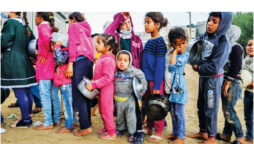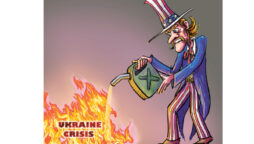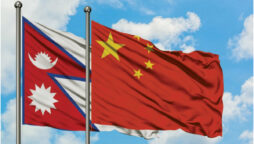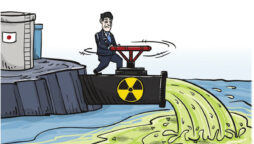
A Legacy of Pessimism
For 12 years, Shah Agha, 42, drove trucks for a US company transporting supplies for US forces.
Life as a trucker was an endless road of pain and suffering. He was under constant fear of violence, both from Afghan militias attacking coalition convoys, and for his service as a driver for occupying forces.
“As a driver for US forces and to forget my daily fears on the roads and highways, I used to smoke heroin,” Agha said. “There were constant problems. I had to use something to forget my suffering.”
Heroin is a big problem in Afghanistan. According to locals, farmers eagerly restarted poppy cultivation and processing heroin right under the noses of an informal alliance of foreign forces and regional warlords.
That cooperation explains how the country could become a narco-state during the presence of some 150,000-strong US-led international forces. The number of drug addicts has also increased, only adding to the suffering of the poverty-stricken Afghans.
“I got addicted 12 years ago and have been hospitalised three times. But after I was discharged from hospital, I resorted to drugs again,” Agha told Xinhua in a rehabilitation centre, the 450-bed Jangalak Hospital in Kabul.
The US-led military coalition invaded Afghanistan under the excuse of fighting terror in October 2001, and abruptly withdrew in August last year. Now, more than 19 million of Afghanistan’s 35-million population face acute food shortages.
A poignant legacy of 20 years of military occupation is the groups of addicted men, women and children lying alongside dusty roads, under bridges and on the banks of the polluted Kabul river.
“The most tangible gift of 20 years of US military presence in Afghanistan is nothing more than poverty, millions of addicts and an isolated country,” said Kabul university professor and political analyst Najibullah Jami.
The 19-year-old Abu Bakr, another patient, became addicted by using tablet K, a Western-made drug, common among certain elements of Afghan youth.
“K isolated me, took me away from my family and made a burden on society. Addiction destroyed my life. I am sorry for hurting my mother and father,” Abu Bakr told Xinhua.
In 2015, there were about 3.5 million addicts in Afghanistan, according to Mohammad Dawod Jaihon, head of Jangalak Hospital, “This year, we have provided treatment to some 1,700 addicts and discharged them from the hospital.”
Catch all the The Globe News, Breaking News Event and Latest News Updates on The BOL News
Download The BOL News App to get the Daily News Update & Live News.











 Read the complete story text.
Read the complete story text. Listen to audio of the story.
Listen to audio of the story.